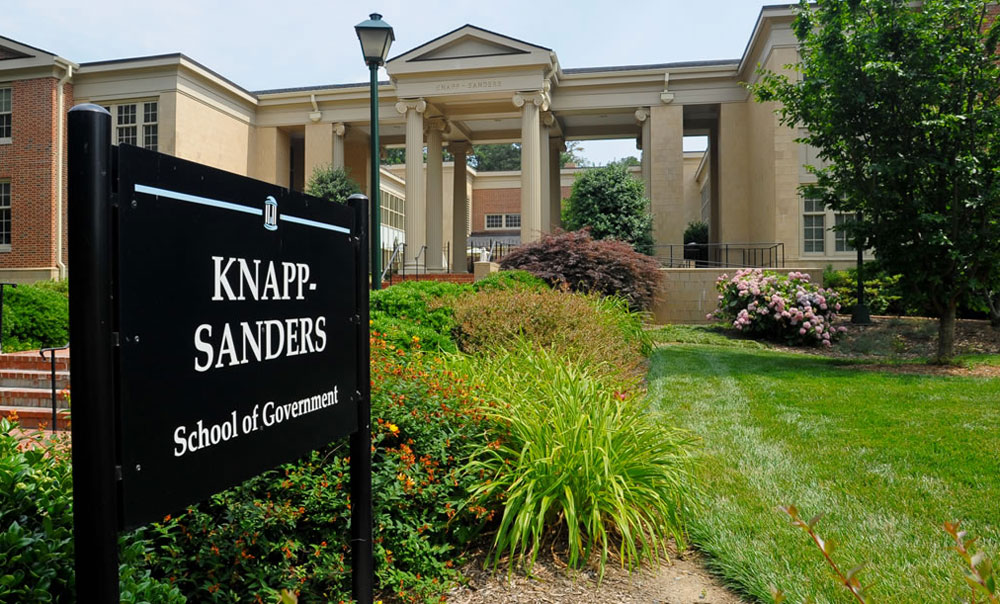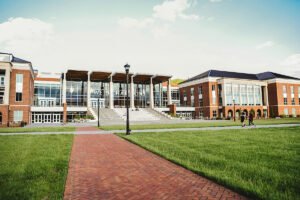
July 17, 2019, Fayetteville Observer and the News & Observer
Two years ago, the director of a college initiative quietly stepped down after leading the program for six years. Now, a recent investigative report has discovered why he left.
The University of North Carolina (UNC) system has repeatedly drawn media attention in the past year for the removal of Confederate commemorative statue Silent Sam and the subsequent resignation of a school chancellor. This time, the story comes from its School of Government. The moral of the story is a systems-thinking law: foresight is morality.
The UNC School of Government at Chapel Hill is the home of the Development Finance Initiative (DFI), founded in 2011 to provide expertise in development and finance to local governments with transformative capital projects and to assist in attracting private investment to those projects. Its projects include affordable housing, downtown revitalization, building reuse and rehabilitation, and “master planning.”
DFI identifies projects in communities that may have been skipped by developers because of economic stress or run-down real estate; as such those neighborhoods posed a challenge to attract investors. DFI then works with the governments and developers to attract the investors to redevelop the properties.
UNC officials state the program is unique among public academic institutions, although globally DFIs exist through specialty national banks owned by the governments to create development in low to middle-income neighborhoods. Since UNC is the first, they have created the model for other universities.
That sounds like exciting work, but also work where those involved could choose to make a little under-the-table influence money without the right guardrails and careful oversight.
The Charlotte News & Observer reported on July 11th on the intersection between DFI’s founding director, Michael Lemanski, and his work as a real-estate developer. When he accepted the role of director at DFI, he stepped down as managing partner from his own struggling building development company, with such properties as a former tobacco warehouse where the roof collapsed because of neglect, according to the tenants.
In its hiring letter to its founding director, UNC raised the need for extreme care in this regard, citing issues specific to Lemanski:
Sign up for our free newsletters
Subscribe to NPQ's newsletters to have our top stories delivered directly to your inbox.
By signing up, you agree to our privacy policy and terms of use, and to receive messages from NPQ and our partners.
The School of Government knew of potential conflict-of-interest issues in hiring Lemanski in August 2011. Its employment letter to him identified issues with Greenfire and noted that he had stepped down as a managing partner.
Citing the university’s conflict of interest policy, the letter said: “The core of the policy is that in your work with UNC Chapel Hill, situations that favor, have the potential to favor, or are seen as favoring Greenfire should be avoided.”
However, despite the heads-up warning it has been revealed that Lemanski, who left DFI two years ago, was involved in alleged conflicts of interest that occurred while he was leading the Initiative:
Lemanski had set up a DFI satellite office in Durham, not far from his own private businesses. One of his business partners ran the DFI operation; Lemanski and two DFI employees took on a development project that came through DFI work and the two DFI employees used the office address as their private business address.
Lemanski left DFI after an internal audit in May 2017 uncovered that he had given a no-bid contract of more than $1.5 million over three years to a business partner to run the downtown DFI office. It was determined that there was no malfeasance in performance, but the contract was subsequently cancelled because of the lack of a bid process.
UNC-Chapel Hill board chair Harry Smith said, “It’s apparent that a lot of this was way across the line from a conflict of interest standpoint, and the board will be doing some further inspection and asking some questions.” Spokeswoman Sonja Matanovic provided an email response from UNC School of Government officials, saying: “DFI has worked closely with the University Conflicts of Interest Office to ensure that we conduct robust conflict of interest reviews consistent with University policy, and we continue to consult with that office to assure that our conflict reviews are effective.” (It appears that the changes to “robust” reviews have been made since the audit that revealed the weaknesses in DFI’s conflict of interest policies under Lemanski.)
Thankfully, many on UNC’s board of governors continue to support DFI’s work with distressed properties and suggest such changes as disallowing DFI staff from using the address for private business, although there is no written policy preventing it. Real estate entrepreneur and restaurant developer Marty Kotis, who is a board member, is still concerned that someone could still use DFI for self-dealing. Kotis told the News & Observer that based on their article, “there are enough questions there that the state auditor and the UNC audit committee should investigate further.”
In a blog on the UNC website, the current director, Tyler Mulligan, who took over in July of 2017, reported that the May 2017 audit was the one that revealed the conflicts of interest. The subsequent audit in 2018 reported no conflicts. Mulligan said one of his tasks when he took the position was to build staff in order to avoid reliance on outside vendors like the one whose contract had been terminated. He also stated that DFI has attracted over $100 million in private investment and has many successful projects that are multi-year commitments with local governments.
The communities involved are likely pulling for the success of an initiative created to improve distressed properties in collaborative partnership with academia, government, private investors, and developers. DFI charges a sliding fee and often works for nonprofits for nothing. Self-dealing entrepreneurs working on profiting themselves must be prevented from scuttling a program with the potential to lift an entire community—Marian Conway











